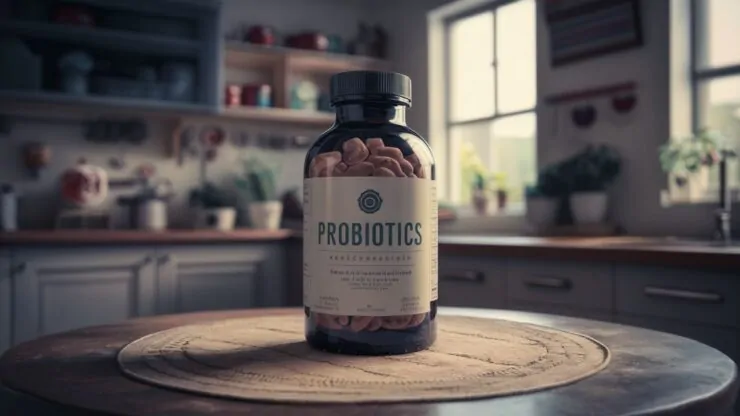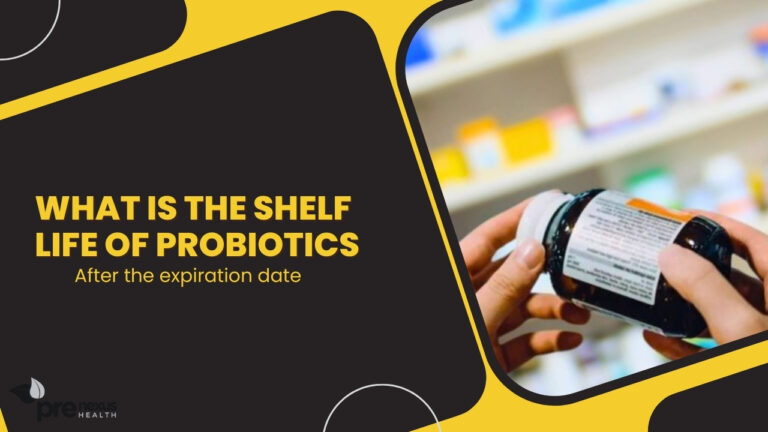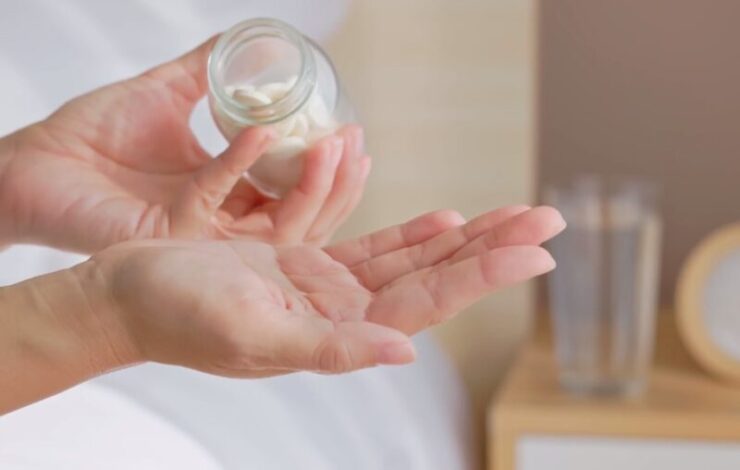For a while now, probiotics have been a hot topic in the health and wellness industry. They are recognized as one of the major answers for immunological response, gut health, and even mental well-being. But what happens when your probiotics reach their expiration date? Do they instantly lose their beneficial properties, or can they last longer?
In this article, we’ll look at how long probiotics last after their expiration date, the factors influencing them, the potential consequences, and the best ways to store them to prolong their shelf life.
Key takeaways
- Probiotics can be taken past their expiration date but may not retain full potency, affecting their effectiveness.
- Storage conditions significantly impact probiotic lifespan; keeping them cool, dry, and away from light preserves their viability.
- The manufacturing process and specific strains determine a probiotic’s shelf life, with some being more resilient than others.
- To ensure maximum benefit, use probiotics by their expiration date and choose high-quality products from reputable brands.
Basics you need to know
Probiotics are living microorganisms, primarily bacteria and yeasts, that confer a health benefit on the host (that’s us!) when consumed in appropriate amounts. These beneficial microbes live in various parts of our body, but the gut houses the largest population.
A healthy balance of these gut-dwelling microorganisms is critical for physical and mental health, immunity, and more.
The expiration date – what does it mean?
An expiration date, or “use by” date, on a product is typically the manufacturer’s estimate of the last date by which a product retains its highest quality.
For probiotics, this usually means the date until which the product will contain the number of living bacteria claimed on the label.
Can you take probiotics past their expiration date?
Short answer: yes, but…
Unlike a carton of milk that goes sour, the efficacy of probiotics doesn’t suddenly disappear the day after they “expire.” But, there’s a caveat.
According to the study: the critical factor is that probiotics are living organisms. From the moment they are manufactured and packed into capsules, tablets, or added to food and beverages, they start dying off gradually. By the time the expiration date arrives, the number of living, active bacteria in the product is expected to be at or above the amount stated on the label. Beyond this date, the count may drop below the guaranteed level, impacting the product’s effectiveness.
So, you can take probiotics after their expiration date, but it’s not generally recommended because there’s a risk they may not be as potent as they once were. This isn’t typically dangerous but may simply mean you’re not getting the full benefits you’re expecting from your probiotic product.
What factors are influencing the lifespan of probiotics?

Several factors influence how long probiotics last past their expiration date:
1. Storage conditions
Probiotics are sensitive to environmental conditions like temperature, light, and moisture. This means that how you store your probiotic supplements could significantly impact their lifespan.
2. Manufacturing process
It can impact viability and stability. For instance, freeze-drying probiotics can enhance their stability, allowing them to survive better until they reach the gut.
3. Type of strains
The longevity and survival rate can also depend on the particular strain of bacteria or yeast. Some strains are hardier than others and can survive longer under unfavorable conditions.
How can you properly store probiotics to extend their shelf life?
Here are some tips to help extend the lifespan of your probiotic supplements:
| Tip | Description |
|---|---|
| Keep cool | Store probiotics in the refrigerator to prevent heat from killing the organisms, unless labeling advises otherwise. |
| Avoid moisture | Keep probiotics in a dry place and avoid humid areas like bathrooms or kitchens to prevent them from turning inactive. |
| Steer clear of light | Light degrades probiotics; store them in their original packaging, designed to protect against light damage. |
| Seal the container | Seal the container tightly after each use to prevent environmental exposure. |
How to read probiotics labels?
To improve the effectiveness of your probiotics, it’s crucial to understand what’s on the label:
- Expiration Date: This is the date until which the manufacturer guarantees the potency and quality of the product.
- CFUs (Colony Forming Units): This term refers to the number of live, active microorganisms in the product.
- Strain: This term refers to the specific type of bacteria or yeast in the product. Some strains are more robust than others.
When to discard probiotics?
Consuming expired probiotics isn’t typically harmful, but it’s important to know when to discard them:
| Criterion | Advice |
|---|---|
| Physical changes | Discard probiotics if there’s a change in color, smell, or texture. |
| Negative symptoms | Stop taking them and consult a healthcare provider if experiencing unusual symptoms after consuming expired probiotics. |
| Lack of benefits | Consider that probiotics may not be effective anymore if you don’t see the expected benefits. |
Can you test the viability of probiotics?
You might be curious – is there a way to verify if your probiotics are still viable past the expiration date?
Currently, there’s no simple at-home method to test the viability of probiotic bacteria or yeasts. The most effective methods are lab-based techniques like plate counts, where the probiotics are grown on a nutrient medium.
But, these methods are beyond the reach of most consumers. So, the best approach is to follow storage guidelines, use probiotics by their expiration date, and pay attention to your body’s responses. If you’re not experiencing the usual benefits after taking probiotics, it could be a sign that they’re no longer viable.
Can expired probiotics be harmful?
The general consensus among experts is that taking expired probiotics is unlikely to cause harm, but it’s crucial to consider this statement with caution. They are generally safe for healthy individuals, but in people with compromised immune systems, they can occasionally cause infections.
It’s important to understand that while probiotics can be beneficial, they’re not universally suitable for everyone. Certain people, such as those with impaired immune function or critical illness, should seek medical advice before starting any probiotic regimen.
While expired probiotics may not be directly harmful, they can indirectly cause harm by not providing the expected health benefits. This could be a concern if you’re relying on probiotics to manage a specific health issue.
How to choose quality probiotics?
When choosing a probiotic, consider the following factors:
| Factors | Description |
|---|---|
| Reputation of the brand | Seek products from companies with a strong reputation for quality control and research. |
| Verified strains | Opt for products that clearly specify the strains of bacteria and have scientific support for their health benefits. |
| Sufficient CFUs | Ensure the product has enough Colony Forming Units (CFUs) to be effective, typically at least 1 billion CFUs per dose. |
| Proper packaging | Choose products with packaging designed to protect against light, moisture, and heat damage. |
| Certifications | Look for third-party testing or certification as a sign of the product’s quality and potency. |
FAQs
Hey there, my name is Martha Robinson and I’m an experienced medical content writer. Initially, I wanted to become a pediatrician, but at one point I decided that writing is my passion. I’ve authored numerous pieces on various subjects, but my expertise lies in skin health





